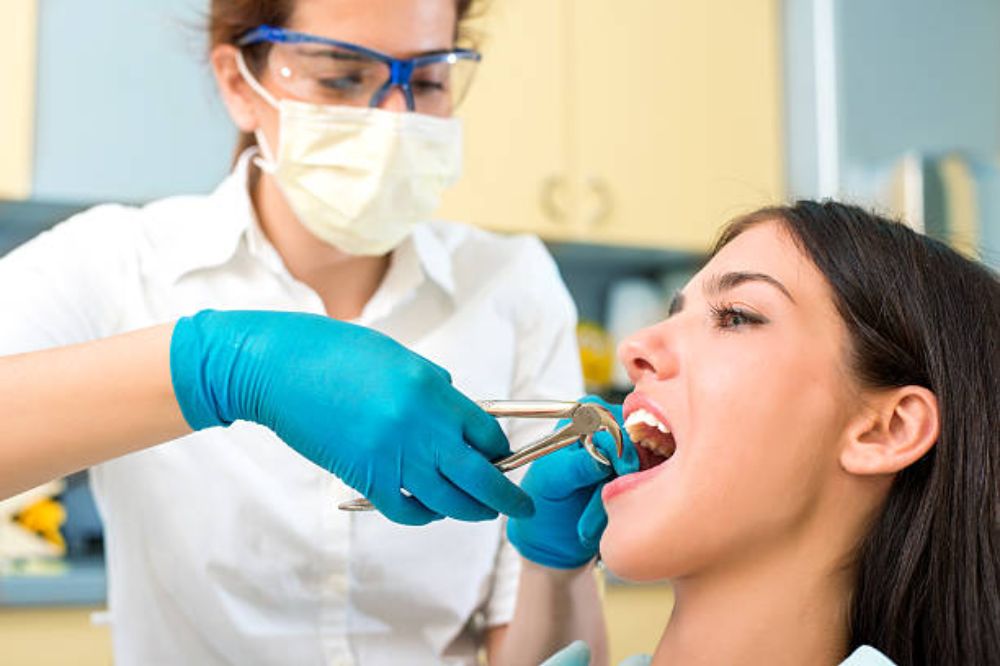
Stressful as tooth extractions are, proper preparation makes the process more bearable. Preparation of what to expect before, during, and after the procedure makes recovery easy. Some of the steps can lead you through preparation for the experience.
Understand Why a Tooth Extraction Is Needed
A tooth may be removed due to decay, infection, or overcrowding. Sometimes a cracked tooth cannot be fixed and needs to be extracted for the overall health of the mouth. Being aware of the causes of tooth extractions in Boston can give reassurance if the procedure is feared.
Schedule a Consultation
Before extraction, a dentist will check your teeth and X-ray them to decide on the best course of action. They will inform you of any preparation that is needed and address questions regarding the treatment. If you have any medical conditions or are on medication, it is best to inform the dentist for safety reasons.
Follow Pre-Appointment Instructions
The dentist may provide one-on-one instructions before the removal. For sedation, fasting for a few hours may be required. Wearing loose clothes and arranging for transport afterward can also be helpful.
Discuss Pain Management Options
Knowledge of options for pain relief before an appointment can be a relief. The use of local anesthesia is usually preferable, though in challenging situations, sedation may be recommended. The dentist in Boston can explain the possible options and decide on the best choice.
What to Expect During the Extraction
The process varies depending on the condition of the tooth. Basic extractions involve loosening the tooth and pulling it out with forceps, whereas surgical ones are needed for impacted teeth. Knowledge of how tooth extractions near you are accomplished will make one less apprehensive.
Understanding the Tooth Extraction Procedure
A tooth extraction procedure starts with numbing the region with local anesthesia. In simple extractions, the dentist gently pulls out the tooth with forceps. If the tooth is impacted or fractured, a surgical extraction can be needed, which requires a small cut in the gum. The dentist makes the process as comfortable as possible for the patient.
Preparation for Recovery
Being at home with ice packs, over-the-counter pain relievers, and soft foods may make healing easier. It is also important to comply with aftercare instructions to reduce swelling and prevent complications.
Rest and Limit Activities
Relaxing for at least 24 hours after extraction allows the body to heal. Avoid strenuous activities, and keep the head elevated to reduce swelling and pain. Giving the body time to recover decreases the risk of complications.
Manage Bleeding and Swelling
There is normal bleeding with extraction. It can be controlled by biting on a gauze pad. A cold ice pack on the cheek intermittently may also prevent swelling. Oral hygiene without disturbing the extraction area is very important. Recovery is safe if done as instructed by the dentist’s guidance.
Avoid Certain Foods and Habits
Smoking, drinking, or eating hard foods can obstruct healing. Soft foods like yogurt, mashed potatoes, and smoothies should be consumed during the initial few days. Avoiding hot beverages and alcohol can also aid in recovery. Keeping the body well-hydrated and consuming healthy meals may aid in healing.
Maintain Oral Hygiene Without Disrupting Healing
Keeping the mouth clean following an extraction is important, but the area is not to be disturbed. Gargling with warm salt water can be done to prevent infection. Brushing and flossing have to be done gently so as not to disturb the extraction area.
Watch for Any Complications
There should be some discomfort that is expected, but untypical pain, swelling, or bleeding longer than a half hour can be a problem. If any abnormal signs occur, an appointment to be examined by a dental office is necessary. Complications diagnosed in the early stages can avoid severe issues.
When to Visit a Dentist After Extraction
Follow-up visits may be necessary, especially for complex extractions. If stitches are used, the dentist will check on healing and have them removed if needed. Adhering to scheduled visits ensures proper healing. Routine dental check-ups can also maintain oral health after an extraction.
Long-Term Oral Care After Tooth Extraction
Following the healing of the area, oral hygiene is critical to prevent any other dental complications. Brushing and flossing regularly, along with visits to the dentist, can ensure the other teeth are protected. If the lost tooth affects chewing or aesthetics, it is best to see a dentist for replacement.
Visit Ellui Dental for Professional Treatment
Preparation for a tooth extraction can make the procedure smoother and less stressful. Knowing about the process, following pre- and post-extraction procedures, and seeking professional advice when needed are all steps that need to be followed. If you need professional advice about tooth extractions in Boston, Ellui Dental is there to provide care and support for a smooth experience.
